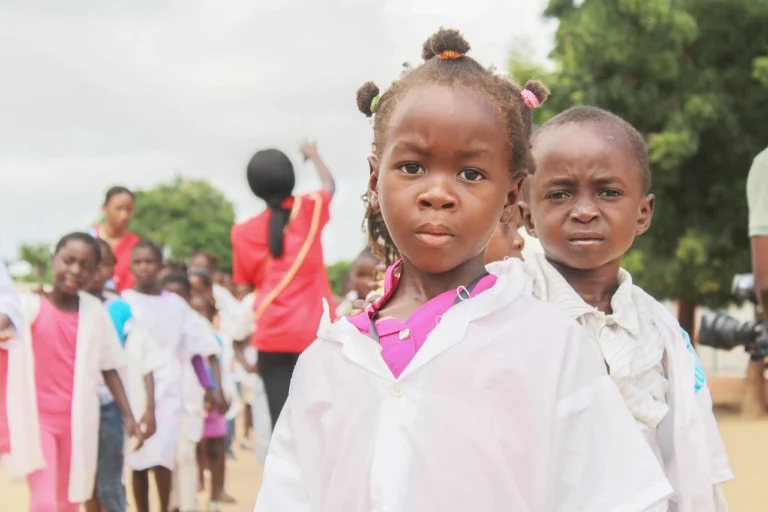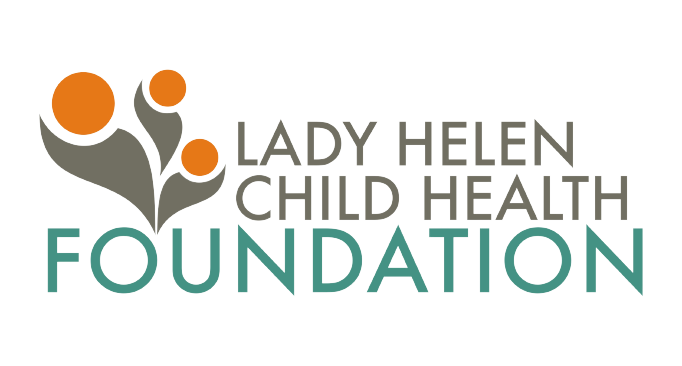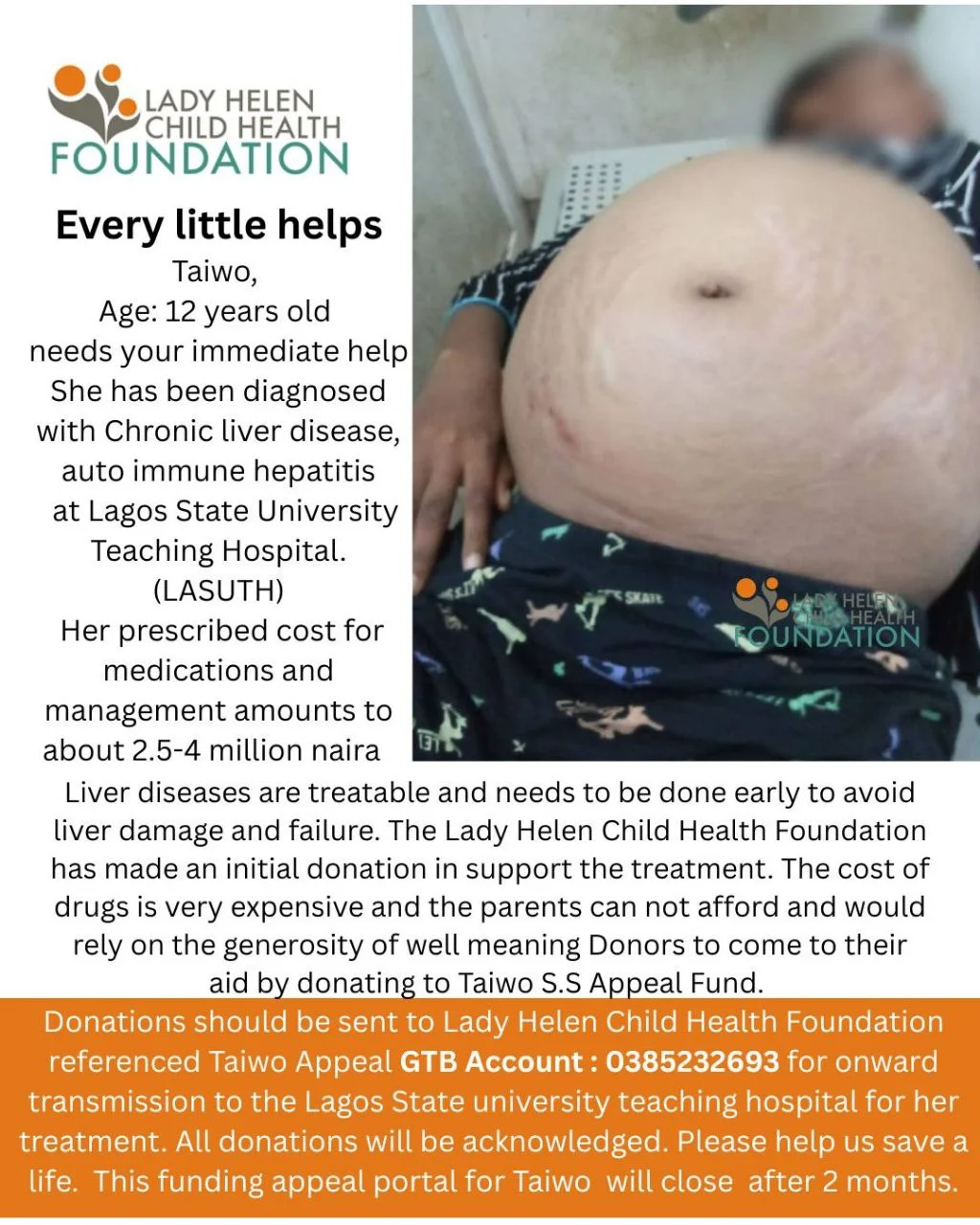
DESKTOP RESEARCH REVIEW SERIES: Implications of Redirection of Aid in Nigeria
Implications of Redirection of Aid in Nigeria: Focus on Vulnerable Children and the Importance of National Orphans and Vulnerable Children Management Information System (NOMIS)
Ms Jessica Benjamin B.L.I.S. Dr Benjamin Odeka MBBS DCH MA FRCP FRCPCH
Introduction
Foreign aid and donor assistance have historically played critical roles in addressing socio-economic challenges in Nigeria, particularly concerning vulnerable populations such as orphans and vulnerable children (OVC). The National Orphans and Vulnerable Children Management Information System (NOMIS) was officially launched in July 2011. This system was developed to enhance the tracking, coordination, and delivery of aid to these children across the country. The development of NOMIS was a collaborative effort involving various stakeholders, including the Federal Ministry of Women Affairs and Social Development (FMWASD) and USAID.
However, the redirection and decline of international aid due to shifting donor priorities, political influences, administrative inefficiencies, and corruption have profound implications on the well-being and development of vulnerable children in Nigeria (UNICEF, 2023; Transparency International, 2024).
Statement of the Problem
Despite the significant inflow of foreign aid into Nigeria, the benefits often fail to reach the most vulnerable segments of the population. The redirection of aid—whether due to mismanagement, corruption, policy shifts, or donor fatigue—undermines efforts to improve child health, education, and protection (Vanguard, 2024). This problem is exacerbated by inadequate monitoring systems, poor governance structures, political interference, and a lack of accountability in aid distribution, leaving many vulnerable children without the necessary support (World Bank, 2023; OECD, 2023).
Purpose of the Study
This study aims to examine the impact of aid redirection on vulnerable children in Nigeria, with a specific focus on the role of NOMIS. It seeks to identify the challenges associated with aid misallocation, evaluate the effectiveness of current monitoring systems, and propose strategies to ensure that aid reaches the intended beneficiaries. Additionally, it explores the socio-economic effects of aid redirection on the development outcomes of vulnerable children.
Methodology
Conducted as a desk top exercise. Information was obtained by way of literature search to identify data, studies, seminars, webinars, newspaper editorials, and AI relating to the impact of aid reduction to Nigeria. Collated information was analyzed and synthesized for editing and sharing with the general public.
Overview of Aid in Nigeria
Nigeria has been a major recipient of international aid, aimed at addressing issues related to health, education, poverty reduction, and child welfare (World Bank, 2023). Despite these efforts, the redirection of aid due to political instability, economic crises, donor policy changes, and governance failures has negatively affected program outcomes. According to UNDP (2024), the lack of effective coordination mechanisms among stakeholders further complicates the efficient utilization of aid resources.
Current Aid Landscape
- US Aid Suspension:Recently, a pause in US foreign aid was announced, which has severely impacted Nigeria’s healthcare, education, and food security sectors. The US has historically invested heavily in health programs that directly benefit vulnerable populations, including children. A halt in this funding has exacerbated existing challenges, particularly in maternal and child health (Punch, 2024).
- Declining International Development Aid:Over the past decade, there has been a noticeable decline in international development aid to Nigeria. In 2024, U.S. foreign aid to Nigeria dropped to $783 million, a 22% reduction from $1 billion in 2023. This decline is attributed to various factors, including shifting donor priorities towards urgent global issues like climate change and security concerns. As a result, programs aimed at poverty alleviation and support for vulnerable children are at risk of underfunding (Sydani, 2024).
Impact on Vulnerable Children
- Healthcare Access:The reduction in aid directly affects healthcare services that cater to children. With Nigeria facing high rates of child mortality and malnutrition, any decrease in funding for health initiatives could lead to increased morbidity and mortality among vulnerable children. For instance, the US has invested significantly in programs combating diseases such as malaria and HIV/AIDS, which disproportionately affect children. According to the United Nations, Nigeria recorded an under-five mortality rate of 100 deaths per 1,000 live births in 2023, placing it among the four countries with the highest rates globally.
Additionally, approximately 11 million children, or one in every three children under five years of age, in Nigeria are experiencing severe child food poverty. This condition makes them up to 50% more likely to suffer from life-threatening malnutrition, including conditions like wasting. These alarming statistics underscore the critical need for sustained international support to address the health and nutritional challenges faced by Nigerian children. (WHO, 2023; United Nation, 2023; UNICEF, 2023).
- Educational Opportunities:The educational system in Nigeria is already struggling to accommodate its growing school-age population. With an estimated 10.2 million children out of school, the withdrawal of foreign aid would worsen this situation by limiting resources available for educational programs aimed at vulnerable children. The US had previously invested over $179 million since 2014 to enhance educational access for Nigerian youth (UNESCO, 2023).
- Food Security:Vulnerable children are particularly affected by food insecurity exacerbated by conflicts such as those caused by Boko Haram. Many families rely on humanitarian assistance for their daily needs, which is threatened by the decline in international aid. This situation is critical as food insecurity can lead to long-term developmental issues for children (USAID, 2024).
- Protection:Vulnerable children are exposed to increased risks of exploitation, abuse, child labor, trafficking, and neglect when social protection programs are underfunded (Save the Children, 2024; Plan International, 2023).
The Role of NOMIS
NOMIS serves as a data-driven platform designed to monitor and coordinate interventions for OVC in Nigeria. It collects, manages, and analyzes data to support decision-making processes related to child welfare programs. While it provides valuable insights into aid distribution and beneficiary tracking, its effectiveness is hampered by data quality issues, limited coverage, inadequate funding, and technological constraints (Federal Ministry of Women Affairs, 2023).
Challenges in Aid Management
- Corruption and mismanagement of funds, leading to diversion of resources (Transparency International, 2024).
- Lack of transparency and accountability in aid allocation and utilization.
- Inconsistent donor policies and shifting priorities that disrupt program continuity.
- Inadequate capacity of local institutions to manage and monitor aid effectively.
- Political interference and bureaucratic inefficiencies affecting aid implementation (OECD, 2023).
Research Gaps and Recommendations
Despite the significant challenges faced by orphans and vulnerable children (OVC) in Nigeria, empirical data on their conditions remains scarce. A situational analysis conducted by various organizations indicates that:
- There are approximately 8.2 million orphans in Nigeria due to various causes, including HIV/AIDS and conflict-related issues (USAID, 2024).
- Many OVC lack adequate support systems due to insufficient government resources and community engagement (Plan International, 2023).
To address these gaps, it is expected that:
- More comprehensive data collection efforts will be implemented to understand the specific needs of vulnerable children.
- Policies should be developed that ensure sustained funding for programs targeting OVC.
- Community involvement should be prioritized in resource allocation and program implementation to enhance effectiveness (Plan International, 2023; UNDP, 2024).
- Strengthening NOMIS’s capacity to provide accurate, real-time data to inform policy and program decisions.
- Enhancing partnerships between government agencies, international donors, and local NGOs to improve aid coordination and efficiency.
- Implementing transparent monitoring and evaluation mechanisms to ensure accountability in the utilization of aid resources.
- Promoting education and awareness campaigns to sensitize communities about the importance of supporting vulnerable children.
Federal Ministry of Health’s Role
The Federal Ministry of Health should prioritize the well-being of vulnerable children by assessing and improving the management of primary healthcare centers (PHCs) across Nigeria. These centers must be adequately equipped to offer essential health services, ensuring that they meet the specific needs of children, particularly in underserved areas. Strengthening healthcare access at the grassroots level is crucial for improving health outcomes among vulnerable populations. In addition, the Ministry must take a comprehensive approach to healthcare by improving maternal health services, expanding vaccination programs, and addressing malnutrition through targeted interventions. A proactive and coordinated effort to enhance healthcare access can significantly improve the overall health and well-being of vulnerable children, ensuring that they receive timely, appropriate care that meets their developmental needs.
Conclusion
The redirection of aid in Nigeria poses significant risks to vulnerable children who are already facing numerous challenges due to poverty, conflict, and inadequate access to essential services. Addressing this issue requires a multi-faceted approach that includes strengthening governance structures, enhancing data management systems like NOMIS, fostering greater donor coordination, empowering local communities, and improving healthcare services through effective management by the Federal Ministry of Health. By implementing these strategies, Nigeria can improve the effectiveness of aid programs and ensure that vulnerable children receive the support they need for a better future.
References
Federal Ministry of Women Affairs. (2023). NOMIS Annual Report 2023. Abuja, Nigeria.
Federal Ministry of Women Affairs and Social Development (FMWASD). (2011). Strengthening National M&E Systems for Orphans and Vulnerable Children Programs: The Nigerian Experience. Retrieved from https://www.slideshare.net/slideshow/strengthening-national-me-systems-for-orphans-and-vulnerable-children-programs-the-nigerian-experience/51275374
OECD. (2023). Aid Effectiveness and Governance. OECD Publishing.
Plan International. (2023). Community Engagement Strategies for Vulnerable Children. Retrieved from https://www.plan-international.org
Punch. (2024). How US Pause on Foreign Aid May Impact Nigeria’s Health, Power, Other Sectors. Retrieved from https://punchng.com
Save the Children. (2024). Protection of Vulnerable Children in Crisis Settings. Retrieved from https://www.savethechildren.org
Sydani. (2024). Declining International Development Aid in Nigeria. Retrieved from https://sydani.org
Transparency International. (2024). Corruption Perceptions Index 2024. Retrieved from https://www.transparency.org
Udi, A. (2024, January 3). United States provided $1.2 billion aid to Nigeria in 2023. Nairametrics. Retrieved from https://nairametrics.com/2024/01/03/united-states-provided-1-2-billion-aid-to-nigeria-in-2023/
UNDP. (2024). Donor Coordination for Sustainable Development. Retrieved from https://www.undp.org
UNESCO. (2023). Global Education Monitoring Report 2023. Paris, France.
UNICEF. (2023). One in three children in Nigeria experiences severe child food poverty due to conflict and climate impacts. UNICEF. Retrieved from https://www.unicef.org/nigeria/press-releases/1-3-children-nigeria-experiences-severe-child-food-poverty-due-conflict-climate
UNICEF. (2023). State of the World’s Children 2023. New York, USA.
United Nations. (2023). Nigeria records 100 deaths per 1,000 births – UN report. Punch News. Retrieved from https://punchng.com/nigeria-records-100-deaths-per-1000-births-un-report/
USAID. (2024). Situational Analysis of Vulnerable Children in Nigeria. Retrieved from https://pdf.usaid.gov
Vanguard. (2024). Challenges in Poverty Alleviation Programs in Nigeria. Retrieved from https://www.vanguardngr.com
WHO. (2023). Global Health Statistics 2023. Geneva, Switzerland.
World Bank. (2023). Nigeria Development Report 2023. Washington, D.C.

